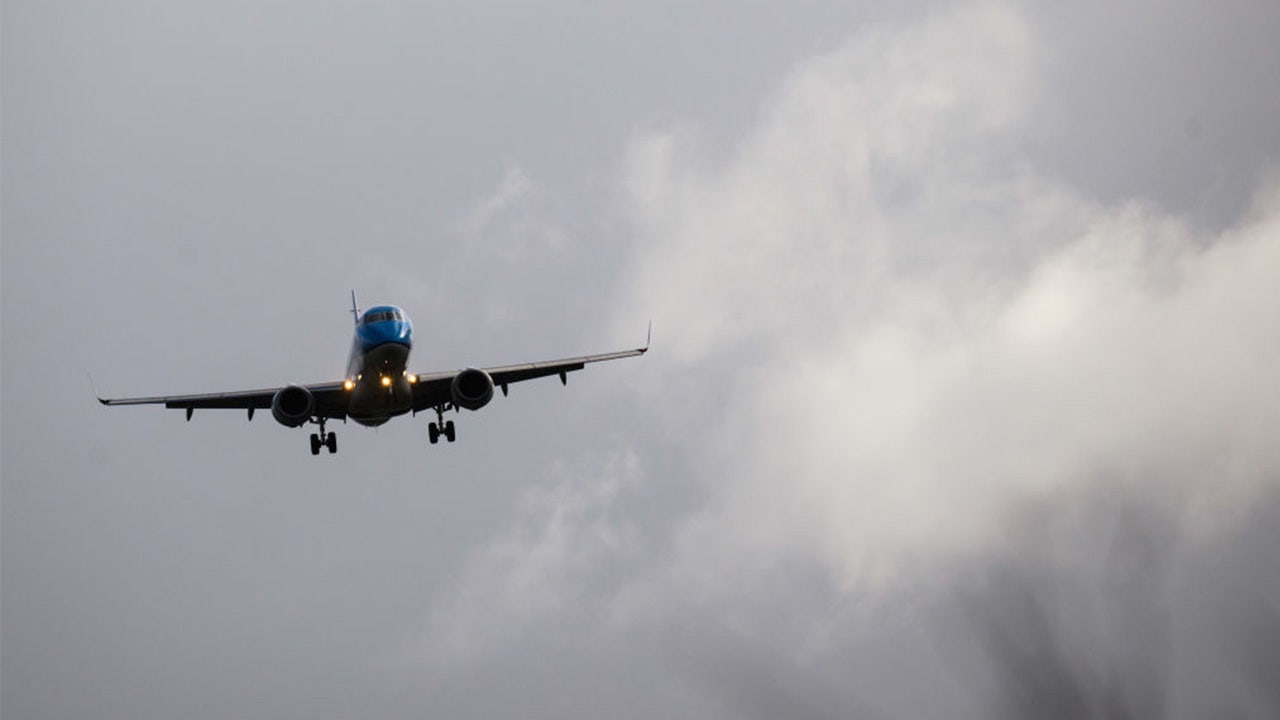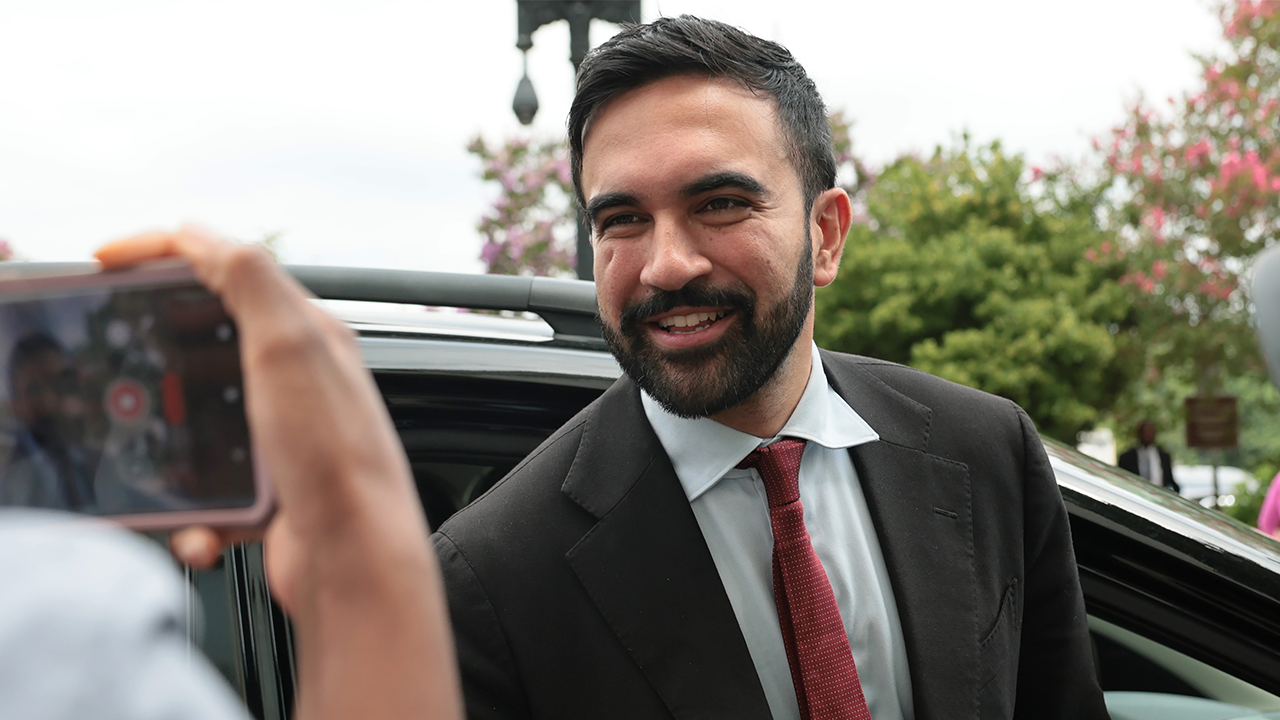Alaska
State still assessing damage toll from ice jam flooding in Circle, Crooked Creek
/cloudfront-us-east-1.images.arcpublishing.com/gray/7DYRA2KV25HHVEOEHWTT66PSZM.jpg)
EAGLE, Alaska (KTUU) – Ice jams caused flooding in Eagle, Circle and Crooked Creek over the weekend, but residents and officials are still assessing the extend of the damage.
Public Information Officer Jeremy Zidek with the state of Alaska Division of Homeland Security and Emergency Management says that that process starts with the safety and wellbeing of the residents.
“What we’ve heard from the communities that all members of the community have been either safely move to higher ground or they are safe,” Zidek said.
The next step is to get emergency medical care for those who need it, followed by an assessment of the damage — and setting up new infrastructure to restore services in each village.
“In Circle, they don’t have power, water, or communications, and we’re working on establishing kind of short term remedies to the situations and then longer-term fixes so people can restore their normal flow of goods and services.
The Division of Homeland Security and Emergency Management is also deploying resources to the affected areas.
“We have a number of generators that are heading to Circle, also some communication equipment that will be able to augment the system that they have there while they work to restore their normal communication. And then we’re also looking at ways to provide them with water,” Zidek said.
That area is one of particular concern due to the severity of the floods.
“In Circle there, the water looks to be at historic levels. In Crooked Creek, the water is about four or five feet higher than what we saw in 2011 when the community flooded, so some pretty significant flooding,” Zidek said.
The community of Crooked Creek suffered some damage, but is on the road to recovery.
“In Crooked Creek, they have been able to restore some partial power, got their generators running and there was generators at the school, which is on higher ground and those were running. Their fuel and their community store is down by the water and those things were in an area that was inundated with water,” Zidek said.
Some companies with crews based in the area are assisting residents affected by the floods, sharing resources with the community.
“We have had some partners like Donlin Gold, a nearby gold mine, that has been providing food and communication equipment to the people in Crooked Creek and we’re really thankful for the work that they’re doing, it really takes all kinds of resources to help out a community when they’ve been impacted by this type of flooding,” Zidek said.
As many more towns and villages downstream await the rapid flow of water and large ice chunks associated with the dynamic breakup this year, Zidek speaks confidently of their level of preparedness.
”We’ve done a lot of preparation this spring. These are communities that know what to do when the floods coming. And so when River Watch teams out in the field have reported back that communities are heeding that warning, and that they’ve been taking precautionary measures, and they continue to do so as it looks like floodwaters could trouble their community.”
Zidek adds that the Alaska Pacific River Forecast Center warned that this would be a year of above-average flood potential, but riverside residents — and state resources — are ready.
”The communities have really done a great job of preparing and we have our partners ready to act if there needs to be some type of action to support the communities,” Zidek said.
Copyright 2023 KTUU. All rights reserved.

Alaska
Captured on camera: An ‘otter-ly’ fantastic adventure through Alaskan waterways
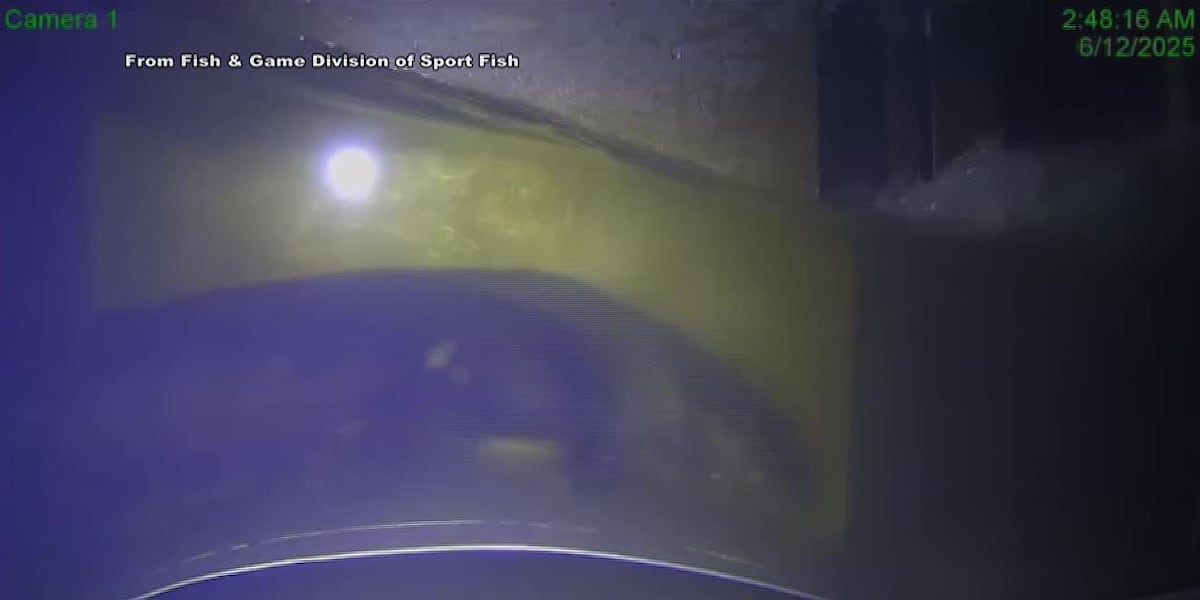
ANCHORAGE, Alaska (KTUU) – For the first time, an otter was captured on camera swimming through the weir at Westchester Lagoon. The Alaska Department of Fish and Game posted the video on their Sport Fishing Facebook page.
“Seeing them go in and out through, that isn’t anything unusual. It’s probably been happening for years. This is just the first time we’ve actually got video footage of it,” said Cory Stantorf, a biologist for the Department of Fish and Game.
According to Fish and Game, the camera was placed to monitor the movement of fish and invasive species throughout Alaskan waterways. A grant from Fish and Game’s Invasive Species Program funded the camera.
Stantorf said it is not uncommon for small marine mammals to find their way through weirs.
“It’s more common for river otters. They’re significantly more mobile in and out of water systems, so they’ll go from Campbell Creek over to Chester Creek, then they’ll bounce back,” he said.
Stantorf said otters are a vital part of the ecosystem that keeps watershed areas healthy. He reminded people to be respectful of all wildlife and to report any negative interactions to the Fish and Game office.
“Just like when people see other wildlife like bears or moose, otters are the same way. You have got to give them space. Don’t approach them,” Stantorf said. “We haven’t had any negative reports this year, which is great.”
See a spelling or grammar error? Report it to web@ktuu.com
Copyright 2025 KTUU. All rights reserved.
Alaska
Sullivan ‘side-deal’ not enough to save rural Alaska public broadcasting, opponents of Trump proposal to funding cut say
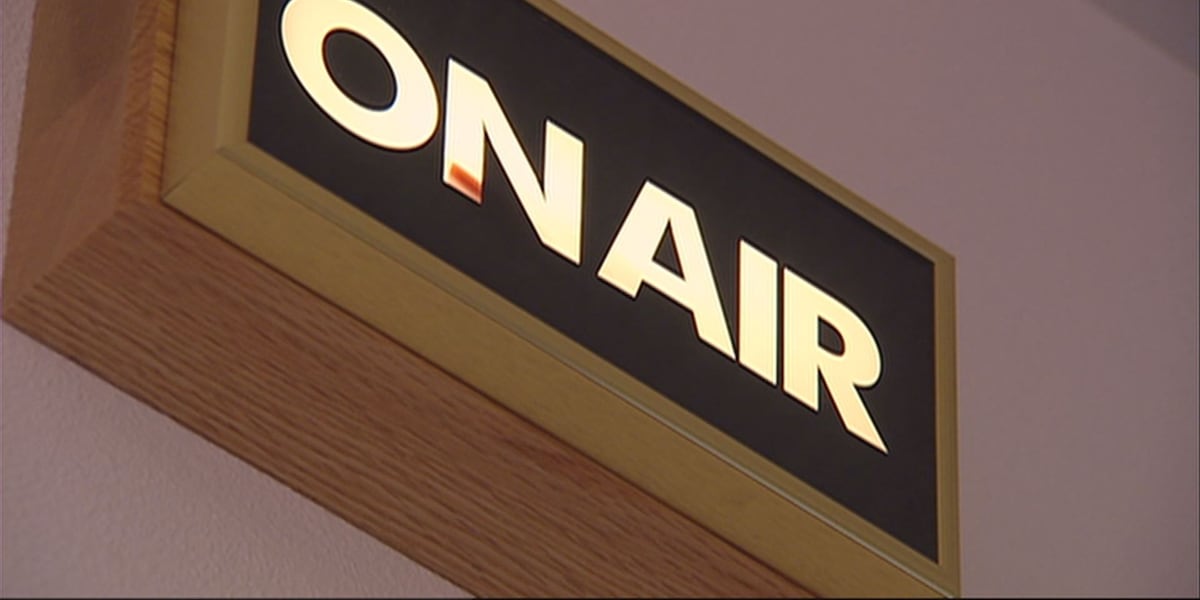
ANCHORAGE, Alaska (KTUU) – Hours before the Senate is set to vote on President Donald Trump’s $9.4 billion proposal to cut funding for public broadcasting and foreign aid, opponents said Sen. Dan Sullivan’s negotiation with the Trump administration – which a spokesperson for Sullivan argued Tuesday night would preserve rural Alaska stations – would not be enough to save them, arguing it only amounted to a one-time check to Tribal public media stations.
“I think with a side deal like this, [with it] not in the underlying legislation, it is not going to be an amendment, so we are sort of relying on different sources both within Congress and the [Trump] administration to talk about what they’ve said they’ve agreed to,” Kate Riley, CEO and President of America’s Public Television Stations said.
But details of how the deal could potentially impact Alaska remain unclear.
Sullivan’s Tuesday night statement announcing the deal, from the senator’s spokesperson Amanda Coyne, did not clarify the framework of how the funding would be allocated.
“Because of the importance of public radio for rural Alaska, for years Senator Sullivan has been an advocate for funding for our rural stations, and has been working for the last number of weeks with his Senate colleagues and senior White House officials on alternative sources of funding to help keep rural radio stations on the air,” Coyne said. “Today, the administration committed to continued funding to help support our most rural stations.”
“As I understand it, there are no officially recognized ‘tribal’ stations in Alaska,” Alaska Public Media President and CEO Ed Ulman told Alaska’s News Source Wednesday. “Only Koahnic Broadcasting Corporation, which operates KNBA, is owned and operated by Alaska Natives.”
Leading up to Wednesday’s debate, last month KNBA President and CEO Jaclyn Sallee released a joint statement with 11 other Alaska public media stations explaining the potential impact.
“KNBA 90.3, could lose nearly 25% of its annual revenue, leading to cuts in service including local Alaska Native news and emergency alerts. Our award-winning national Native programs, Native America Calling and National Native News, part of daily schedules on stations across Alaska, would experience an even greater loss – one from which they might not be able to recover,“ she said. ”More than 60 tribal stations we serve would be disproportionately impacted where they offer efficient emergency alerts and vital community connections.”
The deal, according to Riley’s numbers, would potentially mean Alaska having to split $9.4 million among 28 Tribal stations in eight other states. She said those cuts would come out of reallocated programs from the Department of the Interior.
Senator Mike Rounds, R-South Dakota, who was also reportedly part of the negotiations with the White House, said on X yesterday that cuts from the Green New Deal would fund these Tribal stations.
“We wanted to make sure tribal broadcast services in South Dakota continued to operate which provide potentially lifesaving emergency alerts,” he said. “We worked with the Trump administration to find Green New Deal money that could be reallocated to continue grants to tribal radio stations without interruption.”
The funding, however, will not come in the way of additional legislation or an amendment to the president’s bill currently being discussed by the Senate. So far, Riley said, it only amounts to a Trump administration promise to provide support.
Though 28 Tribal stations would benefit from the promise, she added the Corporation for Public Broadcasting, where funds to local stations would be cut from, provides support to 36 Tribal stations. She did not know which 28 stations would be supported.
Riley said the “side deal” also left unanswered what happens to other rural community public media stations.
“Those are not the only stations that serve native populations and there are many of our local stations that are providing service in communities where there are no other local media sources and no other broadcasters,” she said. “We think it’s critically important that all of those local station services be protected.”
Following America’s Public Television Station’s statement Wednesday, Alaska’s News Source reached out to Sullivan’s office who declined an interview.
When Alaska’s News Source first informed Alaska Public Media’s Ulman about Sullivan’s negotiation Tuesday, Ulman said he was “blindsided.”
“I can tell you for a fact that multiple folks in the state of Alaska have explained to the senator and his office how [public media] works and how [the Corporation for Public Broadcasting] is essential to ensuring that the 27 public media outlets in Alaska can remain in operation,” Ulman said. “So, this isn’t even a compromise. It’s just not gonna work.”
Ulman said Alaska stands to lose more than $30 million in federal funding over the next two years, if the bill is passed.
″It’s a 20% cut to Alaska Public media’s operational budget. How do you run your household If you took a 20 Percent pay cut,” Ulman told Alaska’s News Source Wednesday. “Any type of cut that’s 50% or higher to an annual budget. You’re not the same organization and you can’t cut half of your operation and continue to really thrive.”
He added he’s concerned over how the promised funding to Alaska Native stations would be apportioned, and worried that hedging a bet on a promise from the Trump administration may be problematic.
“I want to see the details. If I were one of my colleagues, say in Petersburg, or in Talkeetna, (or in) Galena, I would want to know the deal. How is this really going to affect me?”
Sen. Lisa Murkowski, R-AK, told reporters in the halls of Congress Wednesday that the public media funding bill was crucial to Alaska.
“There has been probably no issue, no single issue, that has drawn out more interest across the state of Alaksa than support for public broadcasting,” she said. “I come from a state that is extraordinarily rural. I come from a state where access to other forms of information and communication may be limited. It may just come by way of your radio. Call it old school, it’s what we live in many parts of the state.”
Murkowski was one of only three Republicans, including Sen. Susan Collins, R-ME, and Sen. Mitch McConnell, R-KY, who voted not to move forward with a vote, while Sullivan joined most other Republicans in voting to move forward on the bill.
“For years, in numerous meetings, Senator Sullivan has been consistently warning executives from public media entities, the Corporation for Public Broadcasting, and NPR that their biased programming and reporting, funded in part by the American taxpayer, would eventually jeopardize federal support for both national and local radio stations,” Coyne said.
As of publication, the Senate is voting on adding amendments to the legislation. If any amendments are approved by the legislature, the bill will be sent back to the House. The bill must pass Congress by Friday. Riley said she expected the vote to be close.
See a spelling or grammar error? Report it to web@ktuu.com
Copyright 2025 KTUU. All rights reserved.
Alaska
Attorney: $1B suit against Boeing, Alaska Airlines in door plug incident settled out of court
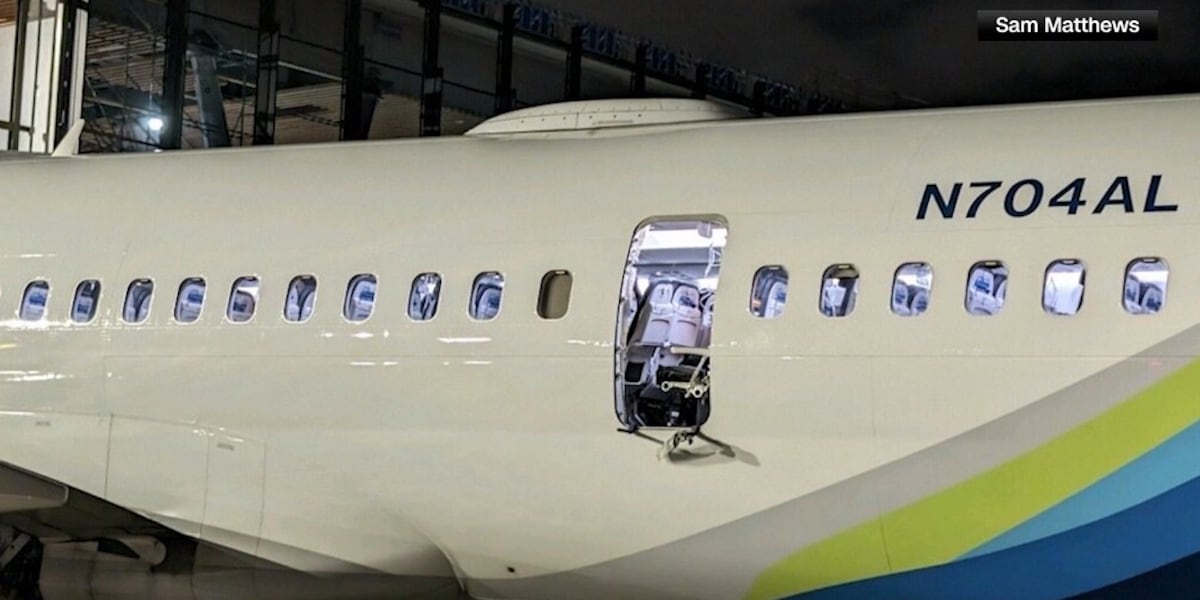
PORTLAND Ore. (KPTV) – Three passengers who sued Boeing and Alaska Airlines for $1 billion over a door plug that flew out mid-air have settled the lawsuit with the companies out of court, according to one of the attorneys for the passengers.
Terms of the settlement were not disclosed, as part of the settlement agreement, according to the attorney.
Court documents show the suit was dismissed with prejudice on July 7, meaning the plaintiffs can not refile the same claim against the companies in the future.
PREVIOUS COVERAGE:
The lawsuit stemmed from an incident on January 5, 2024, when a door plug on Alaska Airlines Flight 1282 from Portland to Ontario, Calif. flew out shortly after takeoff.
Last month, the National Transportation Safety Board found Boeing at fault for the incident following an investigation.
FOX 12 has reached out to Boeing and Alaska Airlines for comment.
Copyright 2025 KPTV-KPDX. All rights reserved.
-

 News1 week ago
News1 week agoVideo: Trump Compliments President of Liberia on His ‘Beautiful English’
-

 News7 days ago
News7 days agoVideo: Clashes After Immigration Raid at California Cannabis Farm
-

 Politics1 week ago
Politics1 week agoJournalist who refused to duck during Trump assassination attempt reflects on Butler rally in new book
-
Business1 week ago
Commentary: Does America need billionaires? Billionaires say 'Yes!'
-

 News7 days ago
News7 days agoTrump heads to Texas as recovery efforts from deadly flood continue
-

 World7 days ago
World7 days agoNew amnesty law for human rights abuses in Peru prompts fury, action
-

 Politics1 week ago
Politics1 week agoObama officials used dossier to probe, brief Trump despite knowing it was unverified 'internet rumor'
-

 News1 week ago
News1 week agoDOGE keeps gaining access to sensitive data. Now, it can cut off billions to farmers
